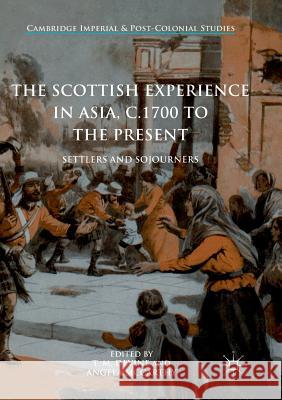The Scottish Experience in Asia, C.1700 to the Present: Settlers and Sojourners » książka
topmenu
The Scottish Experience in Asia, C.1700 to the Present: Settlers and Sojourners
ISBN-13: 9783319827315 / Angielski / Miękka / 2018 / 324 str.
The Scottish Experience in Asia, C.1700 to the Present: Settlers and Sojourners
ISBN-13: 9783319827315 / Angielski / Miękka / 2018 / 324 str.
cena 121,01
(netto: 115,25 VAT: 5%)
Najniższa cena z 30 dni: 115,63
(netto: 115,25 VAT: 5%)
Najniższa cena z 30 dni: 115,63
Termin realizacji zamówienia:
ok. 22 dni roboczych
Bez gwarancji dostawy przed świętami
ok. 22 dni roboczych
Bez gwarancji dostawy przed świętami
Darmowa dostawa!
Kategorie BISAC:
Wydawca:
Palgrave MacMillan
Seria wydawnicza:
Język:
Angielski
ISBN-13:
9783319827315
Rok wydania:
2018
Wydanie:
Softcover Repri
Ilość stron:
324
Waga:
0.41 kg
Wymiary:
21.01 x 14.81 x 1.8
Oprawa:
Miękka
Wolumenów:
01
Dodatkowe informacje:
Wydanie ilustrowane











